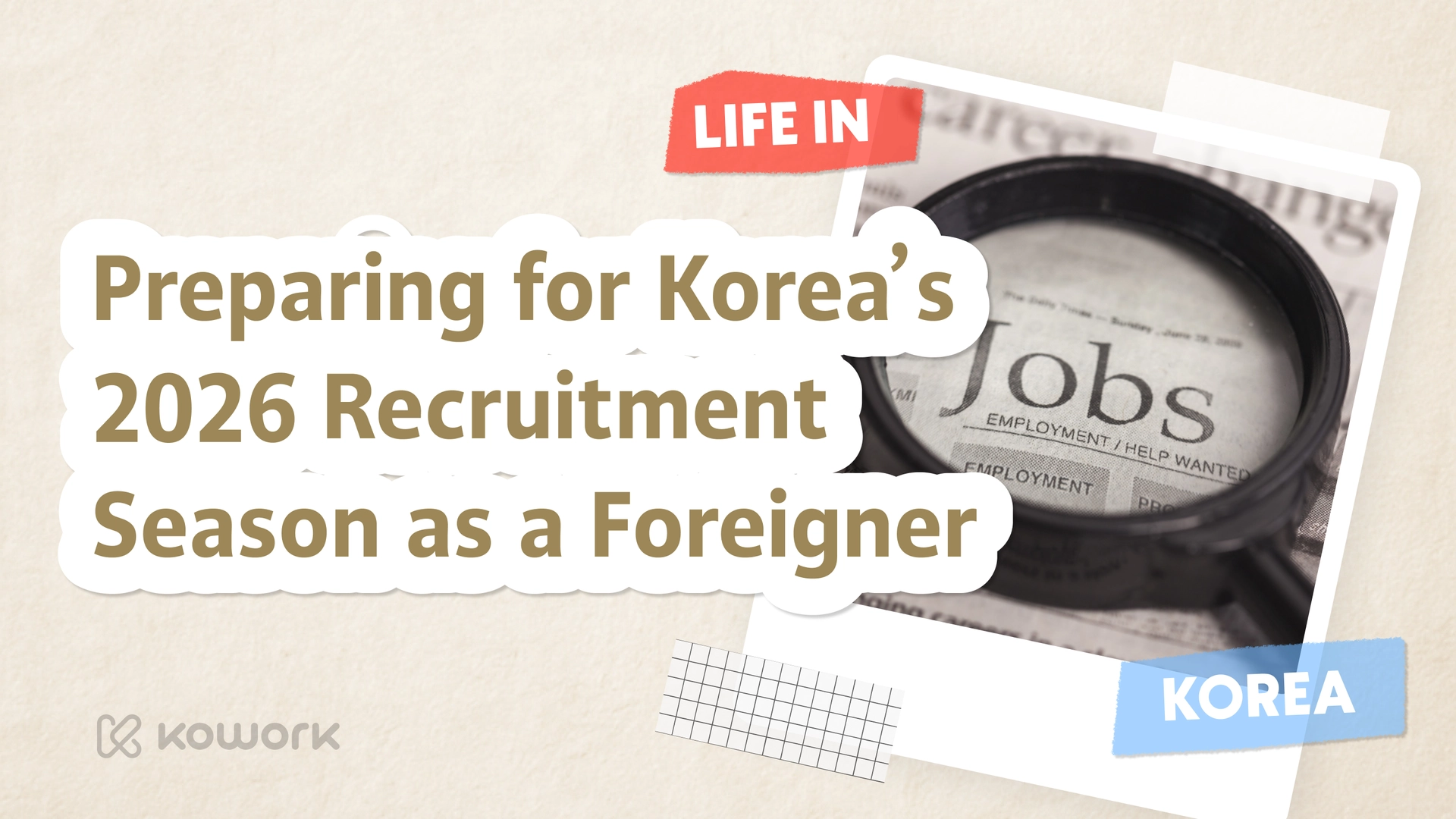Adjusting to life in Korea means learning not just the language or work culture, but also everyday systems that might feel completely new, like how to throw away your trash. Korea is known for having one of the most organized and strict recycling systems in the world, and for newcomers, it can seem confusing at first.
However, understanding these rules is essential. Waste management in Korea is taken seriously, and everyone - including foreign residents, is expected to follow the system correctly. Proper sorting isn’t just about avoiding fines; it’s also about respecting your community and contributing to the country’s strong environmental efforts.
Key Rules and Categories
Here’s a quick overview of how trash and recycling are separated in Korea:
🗑️ General Waste (일반쓰레기)
Items that can’t be recycled or composted, such as tissues, hygiene products, and certain plastics, go into volume-based trash bags (종량제 봉투). You can buy these at convenience stores or supermarkets in your district.
🥙 Food Waste (음식물 쓰레기)
This includes leftover food, vegetable peels, and grains — but not bones, shells, or liquids. Many apartments use RFID food waste bins that weigh your waste automatically; in other places, special food waste bags are used.

💡 The following items should be treated as general waste, rather than food waste.
- Vegetables : Root vegetables such as chives, leeks, and water celery, chili seeds, chili stem, cornstalk, onion skins, garlic peels, ginger peels, and corn husk.
- Fruits : Hard shells of walnuts, chestnuts, peanuts, and acorns, and seeds of peaches, apricots, and persimmons.
- Seafood : Shells of clams, conchs, abalones, sea squirts, oysters, crabs, and crayfish, and fish bones.
- Meat : Fur and bones of cattle, pigs, chickens, etc.
- Egg shells : Shells of eggs, duck eggs, quail eggs, ostrich eggs, etc.
- Other : Grounds of various tea, medicinal herbs, coffee beans, disposable tea bags / tooth picks.
♻️ Recyclables (재활용품)
Recyclable materials include clean paper, glass, cans, and plastics. Always rinse and dry them before disposal as contaminated items can be rejected. Use clear plastic bags or designated bins in your building for recyclables.

Bulky Items (대형폐기물)
Furniture, home appliances, and large items must be registered online through your local district office. Once you pay the small disposal fee, you’ll receive a sticker or QR code to attach before placing the item out for collection.
⚠️ Hazardous Waste (유해 폐기물)
Batteries, light bulbs, and expired medicine must be taken to special collection points, often found at pharmacies, supermarkets, or community centers.
💡 Key Things to Remember
- Buying the Right Bags
Use only official trash bags from your district. Bags from other areas will not be accepted.
- Sorting at Home
Keep separate bins for recyclables, food waste, and general trash. Rinse recyclables and store food waste in a sealed container to prevent odor.
- Collection Times
Each neighborhood has specific collection days and times, often during the evening. Putting trash out too early or on the wrong day can result in penalties or neighborhood complaints.
- Apartment vs. House Rules
Apartment complexes usually have shared waste stations or smart bins. Detached houses may follow curbside pickup rules. Always check your building’s notice board or ask your landlord.
Recent Updates (2025)
As of 2025, Korea continues to tighten recycling standards under the Act on the Promotion of Saving and Recycling of Resources.
- The government has increased incentives for manufacturers using recycled plastics in packaging and products.
- There are new efforts to exclude incinerated plastic from being counted as “recycled,” meaning stricter guidelines on what qualifies as actual recycling.
- Local governments are reinforcing the volume-based waste fee system, ensuring that residents who produce more general waste pay more through measured bins or district-specific bags.
Tips to Stay Compliant and Comfortable
- Check your district’s website or building notice board for local waste rules.
- Always buy official trash bags from your area’s convenience store or supermarket.
- Rinse recyclables clean and dry before disposal.
- Don’t mix food waste with general trash.
- Register bulky items before leaving them outside.
- When unsure, ask your building manager, landlord, or neighbors — most are happy to explain.
Conclusion
Following Korea’s recycling and trash rules may seem complicated at first, but once you get used to it, it becomes part of daily life. Proper sorting helps keep neighborhoods clean, supports Korea’s sustainability goals, and shows respect for your local community.
By learning how to manage your waste correctly, you’re not only adapting to life in Korea, you’re contributing to the country’s ongoing effort to create a cleaner, greener future for everyone.



































